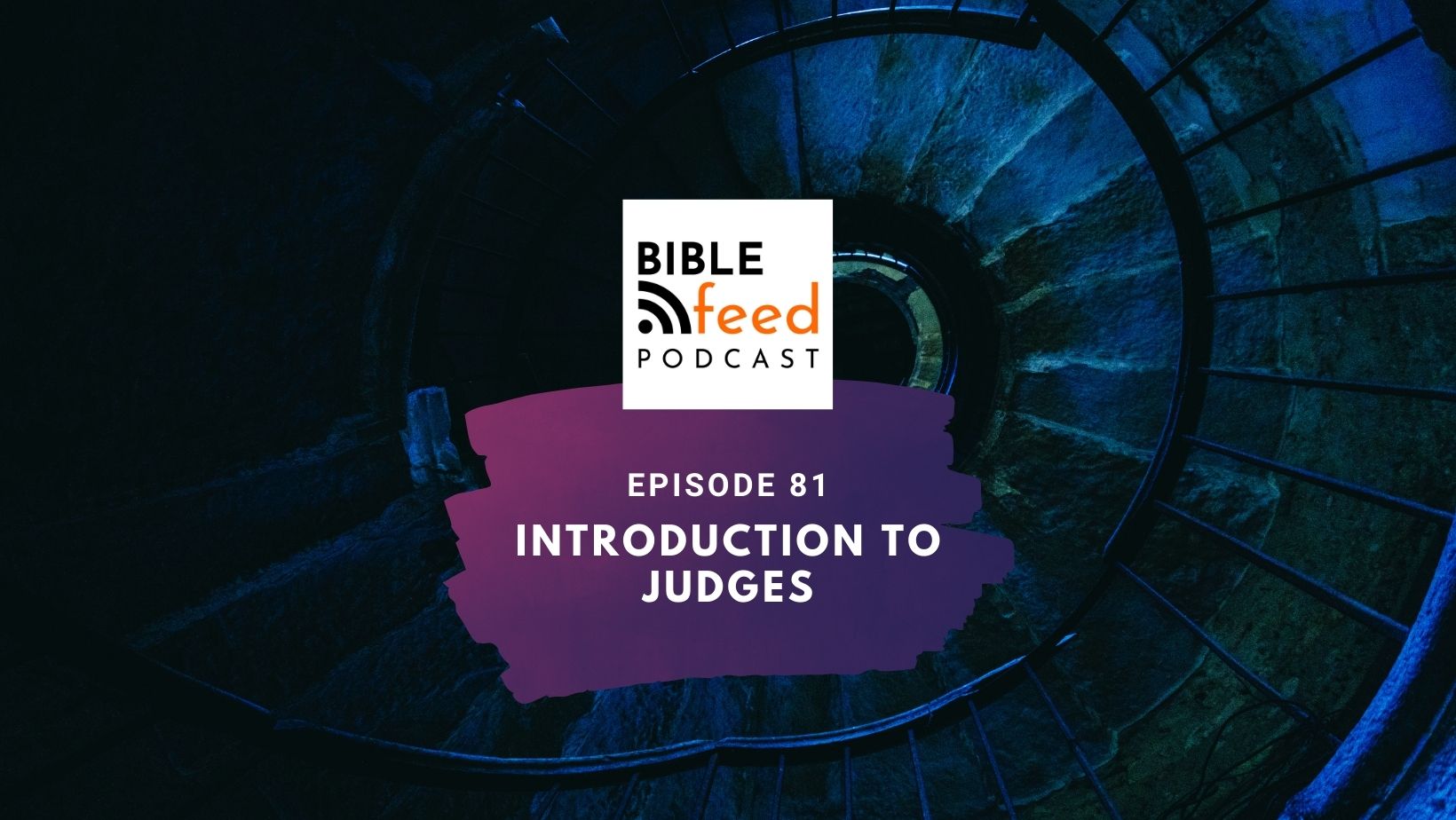Episode 81: Introduction to Judges
This episode on the book of Judges kicks off by placing Judges in its historical timeline immediately following the book of Joshua. Dan and Paul then examine the structure of Judges, highlighting its three main sections and the cyclical pattern of Israel’s faithfulness and failure. After exploring the darkest chapters towards the end of Judges, illustrating Israel’s moral decline, they conclude on a more positive note by briefly discussing the book of Ruth. This is a story of loyalty and redemption set in the same tumultuous period, but showcasing God’s continued faithfulness in moving his plan for redemption forward in an unexpected way.
Show Notes
Beginning with a summary of the Biblical story so far, Dan and Paul talk about how the book of Judges seems to be obscure and little known. After discussing regional accents(!) in relation to Judges 12:5-6, and the fall of bronze age settlements to the invading sea peoples, they begin to look at the structure of the book of Judges
A cycle of sin in the book of Judges
The book opens with a series of statements condemning the tribes of Israel for not driving out the inhabitants of the land of Canaan. What follows is a description of the people of Israel falling into a cycle of idol worship, oppression, crying out to God followed by God raising up a deliverer. These judges, as they are known, are the individuals who save the people from oppression and reinstate stability in the affected region.
Paul describes how 12 judges are mentioned throughout the book, (plus one impostor – Abimelech), and that they each had activity and influence in different parts of the land, liberating different tribes. This deliberate collection of material by the author of the book seems to be emphasising how every tribe are failing to keep the covenant that they had entered into. Whether they are from the north or south of the land, they should be living under God’s covenant laws, but are all turning rapidly to idol worship.
Imperfect and ambivalent judges
Dan and Paul briefly discuss the four main stories covering Deborah and Barak, Gideon, Samson and Jephthah and note how there are all elements of ambivalence in the stories or characters of those judges used to save the people of Israel. However, Hebrews 11:32 picks out each of these four main stories and comments on their faith. The important point is therefore that God works through imperfect humanity who nonetheless come to trust him and are loyal to him.
Moral collapse in the book of Judges
If the cycles of idol worship and oppression aren’t bad enough, the book of Judges ends with a sequence of two horrendous stories full of the most depraved activity. From self appointed worship leaders and priest-stealing to rape and a brutal war of almost extermination, these chapters are designed to show exactly how low the tribes of Israel had fallen to.
A small light of hope in the days of the judges
Dan and Paul conclude by giving an overview of the book of Ruth, and how this story of hope is set “in the days when the judges ruled” (Ruth 1:1). A foreign widow becomes the absolute beacon of covenant loyalty to the God of Israel, and she ends up as an ancestor to king David and ultimately Jesus himself.
Related content
Episode 80 – Introduction to Joshua – a new generation
Episode 16 – Our first episode on the Gospel of Matthew where we discuss the genealogy of Jesus (which includes Ruth!)







